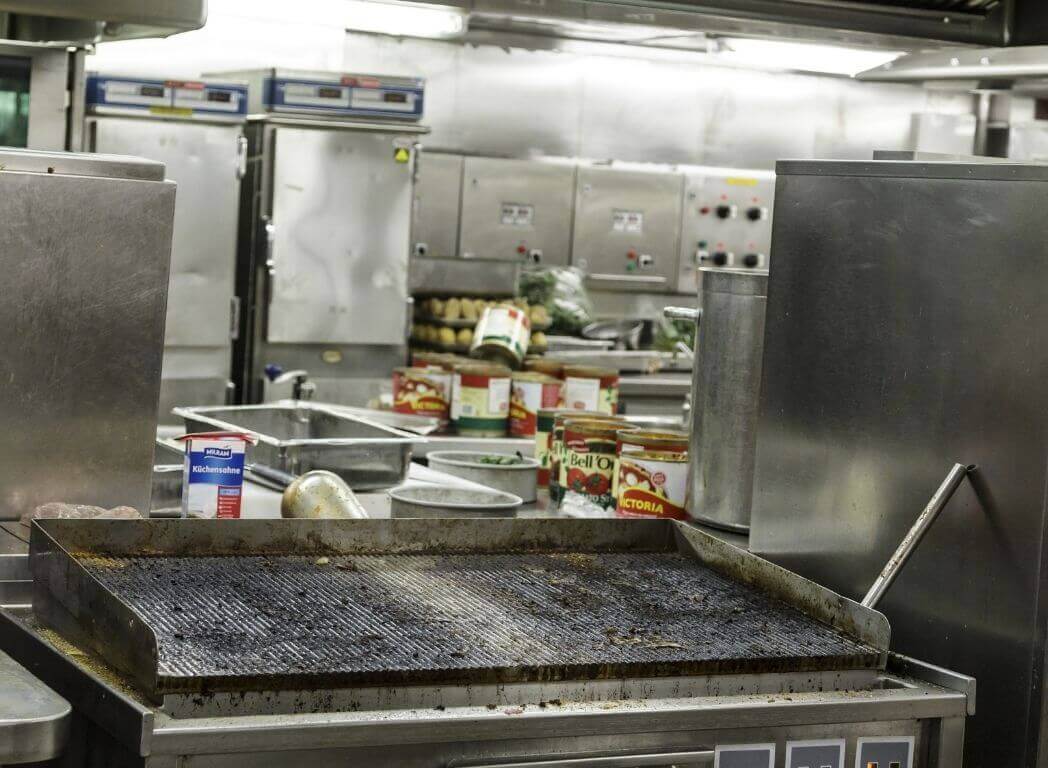Do you own a restaurant in Raleigh, North Carolina? If so, it’s possible that you’ve had some grease-related issues. Some of the issues can include:
- Clogging of the drainage system
- Smelly odors
- Fire risks
- Health issues
More often than not, poor maintenance of grease traps is the #1 cause of these issues. It goes without saying that you need to keep your commercial kitchen’s grease trap clean regularly in order to avoid problems.
So, do you remember the last time you cleaned your trap? Are you wondering how often you should clean them? If so, this post is for you!
In this article, we are discussing how often you should clean your commercial grease traps!
5 Signs You Need to Clean your Restaurant’s Grease Traps
As a business owner, one of your main goals should be to minimize expenses. One way of doing this is by ensuring your grease trap is regularly cared for.
The following are the telltale signs that your restaurant’s grease trap needs cleaning.
1. When your drain becomes clogged.
This is a no brainer. A clogged drain is a common indicator of poor grease trap maintenance.
You may be wondering: how does a drain become clogged up? Well, over time, the fat, oil and grease (FOG) accumulate in your grease trap and begin to solidify.

Under normal circumstances, you should be able to see through a grease trap when it’s clean. However, it becomes impossible to see through a trap when FOG has stiffened at the top and formed a cap.
With all the buildup of grease, dirt and food waste, normal flow of water becomes hard leading to slow movement of waste.
A clogged drain is bad for your North Carolina restaurant business. Among other things, it can even cause local health authorities to temporarily shut down your commercial kitchen.
So, make sure you get your trap cleaned the moment you start noticing the flow rate of waste has reduced.
2. When you start noticing an unexplainable smell from your grease trap.
Have you noticed strange odors coming from your commercial kitchen? If so, foul smells are often a common indicator of a poorly maintained grease trap. These are the kinds of smells that don’t go away even after you’ve thoroughly cleaned your kitchen.
Grease trap odors usually result from buildup of fats, oils and grease (FOG) over a long period of time.
So, if you notice a stench that won’t go away even after you’ve removed the garbage cans from your kitchen, have your grease trap checked.
3. When the waste exceeds 25% of the wastewater depth.
According to experts, grease traps should be cleaned when FOG exceeds 25% the depth of the wastewater.

If surplus FOG fills the container, it’s highly likely that important functions and processes will get interrupted, such as slowing down the flow of waste and causing bad odor in your facility.
It’s easy to forget about grease trap cleaning, especially when running a busy kitchen. So, we recommend having a maintenance checklist in place.
4. When you have trouble remembering the last time you cleaned your grease trap.
If you can’t remember the last time you cleaned your grease trap, then it’s probably time that you schedule a grease trap cleaning!
Ideally, grease traps should be cleaned every 3 months. This is, however, dependent on how busy your Raleigh kitchen is. If very busy, you may need to have it cleaned monthly.
Doing so will not only help you avoid issues with your grease trap, but it will also help your kitchen adhere to EPA and your city’s local health standards.
5. When you find FOG in unusual areas.
Last but not the least, you may need to clean your grease trap if you find FOG in unusual areas.
When your grease clogs, FOG may try to escape via the easiest exits, such as the sewer pipes, sinks, and water lines. When this happens, you’ll find grease in unusual places around your kitchen.
As such, if you notice this, have your trap inspected.

Bottom Line: Cleaning Grease Traps
Evidently, ensuring your grease trap is cleaned regularly is beneficial for you and your restaurant business.
You may need to clean your grease trap if:
- The drain becomes clogged.
- There are unexplainable odors.
- The waste exceeds 25%.
- You can’t remember the last time you cleaned it.
- Fats, oils and grease are found in unusual areas.
Should you find the cleaning process of your North Carolina grease trap daunting, Greasecycle can help. Our motto is to “Make the Dirty Clean and the Ugly Beautiful.” Get in touch with us to learn more about our grease trap cleaning services.